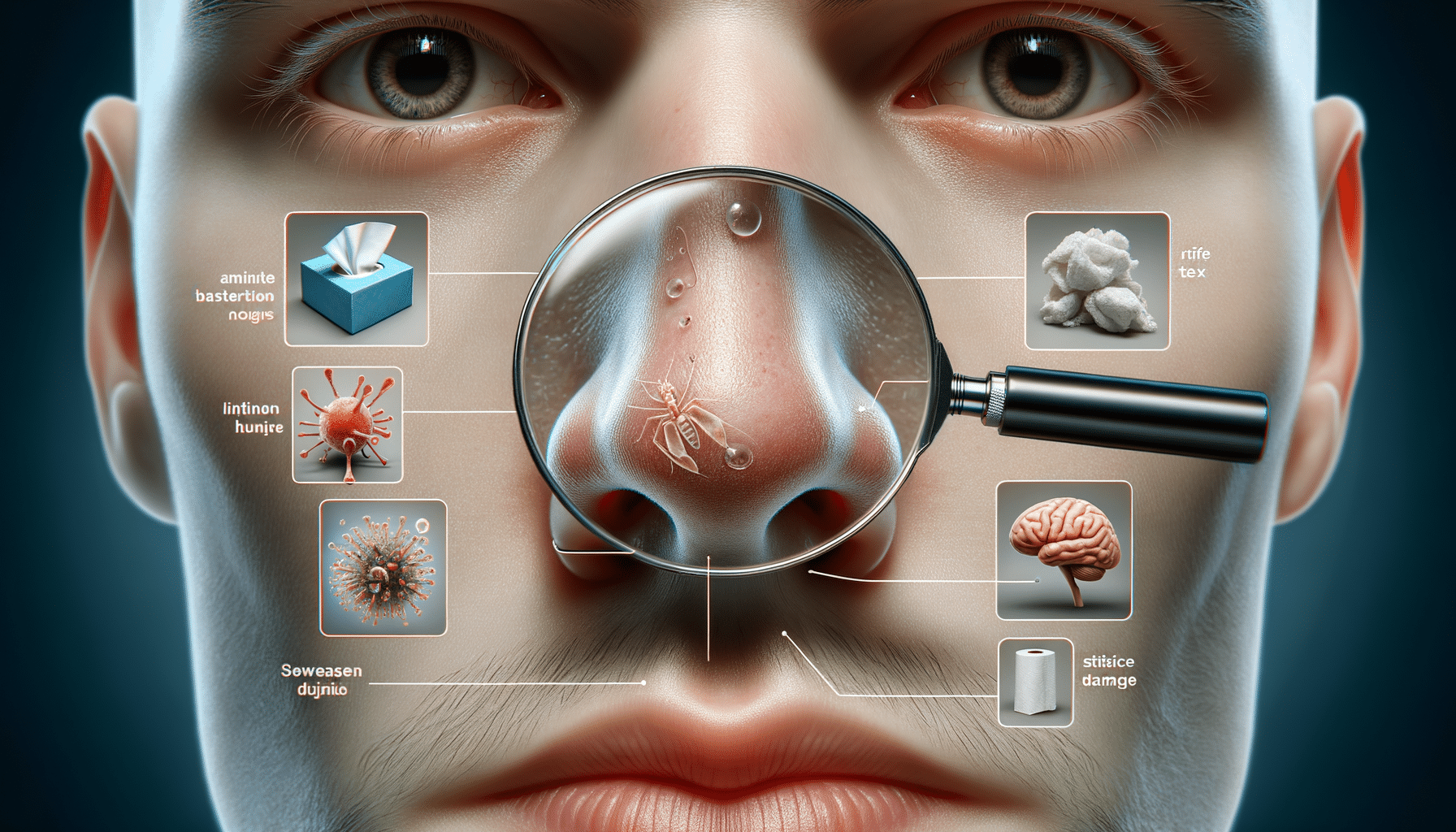
Why Picking Your Nose Can Be More Dangerous Than You Think: 5 Health Risks Most People Ignore
Introduction
Nose picking is often considered a harmless habit, but it can pose several health risks that many might not be aware of. This article delves into the potential dangers associated with this common behavior, emphasizing the importance of awareness and hygiene.
Risk of Infection
One of the primary health concerns associated with nose picking is the increased risk of infection. Our hands come into contact with countless surfaces throughout the day, gathering bacteria and viruses. When these germs are introduced into the nasal cavity, they can lead to infections. The nasal passages are lined with mucous membranes that can easily become inflamed or infected, resulting in conditions such as sinusitis or even more severe respiratory illnesses.
To minimize this risk, it’s crucial to maintain hand hygiene. Regular hand washing with soap and water can significantly reduce the number of pathogens on the skin. Additionally, using a tissue instead of fingers to clean the nose can help prevent the transfer of bacteria and viruses.
- Wash hands regularly with soap and water.
- Use tissues instead of fingers to clean the nose.
- Avoid touching the face, particularly the nose and mouth, with unwashed hands.
Nasal Damage
Another concern is the potential for nasal damage. The inside of the nose is delicate, and frequent picking can cause abrasions or tears in the mucous membranes. This not only leads to discomfort and potential bleeding but also creates an entry point for bacteria, increasing the likelihood of infections.
In severe cases, habitual nose picking can lead to chronic nosebleeds or even perforation of the nasal septum, which is the cartilage that separates the nostrils. This condition can cause breathing difficulties and may require surgical intervention to correct.
- Avoid inserting fingers or objects into the nose.
- Seek medical advice if experiencing frequent nosebleeds or discomfort.
- Consider using saline sprays to keep nasal passages moist and reduce irritation.
Spread of Illness
Nose picking can also contribute to the spread of illness. When individuals pick their noses, they may inadvertently transfer germs to surfaces or other people. This is particularly concerning in public spaces or communal environments where germs can easily spread from one person to another.
To prevent the spread of illness, it’s important to practice good respiratory hygiene. This includes covering the mouth and nose with a tissue or elbow when sneezing or coughing and disposing of tissues immediately. Regular cleaning of frequently touched surfaces can also help reduce the risk of transmission.
- Cover mouth and nose when sneezing or coughing.
- Dispose of tissues immediately after use.
- Clean frequently touched surfaces regularly.
Social and Psychological Implications
Beyond physical health risks, nose picking can have social and psychological implications. It is often viewed as a socially unacceptable behavior, leading to embarrassment or social stigma for those caught in the act. This can affect an individual’s self-esteem and social interactions, particularly in children and adolescents who may face teasing or bullying from peers.
Addressing this habit requires understanding and support. Encouraging positive hygiene habits and offering gentle reminders can help individuals break the habit without feeling ashamed. For children, parents can model appropriate behaviors and provide education on the importance of personal hygiene.
- Encourage positive hygiene habits.
- Offer gentle reminders to avoid nose picking.
- Provide education on personal hygiene, especially for children.
Conclusion
While nose picking might seem like a minor habit, it carries several health risks that should not be overlooked. By understanding these risks and taking proactive measures to maintain hygiene, individuals can protect their health and well-being. Encouraging awareness and education about this common behavior can lead to healthier habits and improved public health outcomes.